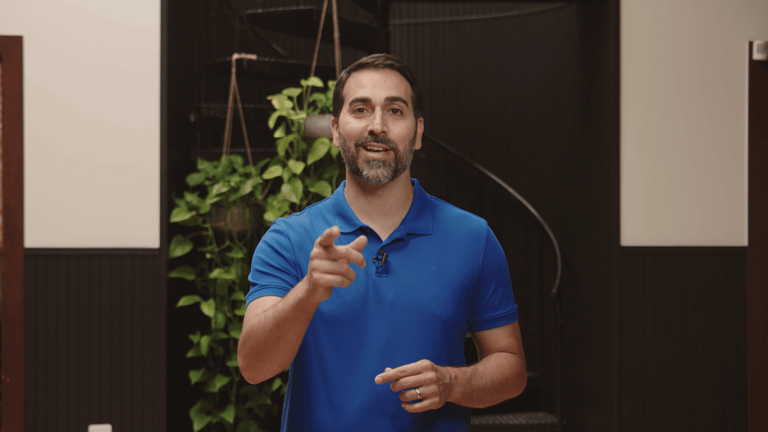
Did you know many 401(k) plans let you borrow money as a loan?
Your borrowing from your nest egg can seem like an attractive option if you’ve accumulated credit card debt. In 2020, the average U.S. household’s credit card debt was over $6,700, and that same household will pay an average of $1,100 in interest charges in 2021.
Benefits of borrowing from your 401(k):
When you compare it to other forms of borrowing like personal loans, home equity loans, or credit cards, a 401(k) loan comes with some solid benefits.
1. Access funds quickly
You can access funds from a 401(k) pretty quickly. As long as your retirement plan provider allows you to take out loans, it typically comes with very little paperwork or waiting time to qualify.
You should be able to put in a request for a 401(k) loan and have access to your funds within seven to 10 days, or sooner, depending on how quickly your provider operates.
2. No credit check
The second advantage is that, unlike when you apply for a credit card or other type of loan, there’s no credit check to borrow from your 401(k). Remember: It’s your money! The financial institution doesn’t take the same kind of risk with a 401(k) loan as it does if you borrow with a regular loan.
If you’re concerned about your credit score, or you’ve been denied for other types of loans, you could have better luck with a 401(k) loan. As long as your employer’s plan allows it, you should be able to get the loan.
3. Easy repayment
Repaying a 401(k) loan is usually flexible and convenient. The payments will be automatically deducted from your paycheck when the repayment period begins, so you don’t have to worry about staying on top of your payments. You just have to adjust your budget during the repayment period, since your take-home pay will be lower than usual.
You also have the option to increase your payments and repay the loan faster with no prepayment penalty, a fee that shows up with some other types of loans.
4. Low “interest” rate
Just like other loans, you’ll repay a little bit more than you borrowed from your 401(k). With another type of loan, that overpayment is interest, and it goes to the lender—it’s lost money for you.
With a 401(k) loan, that overpayment is still referred to as interest, but it’s not like interest on other loans or credit. All of the money goes back into your account, so you don’t lose money to interest charges. Instead, you hopefully make up for money your account might have earned if you hadn’t made the withdrawal.
Plus, the so-called interest rate on 401(k) loans is usually a little lower than for other types of loans and much better than for credit cards. So you can save your budget with lower payments as well.
5. Better than a distribution
The alternative option for taking money from your retirement account is to take a distribution, which comes with a penalty from the IRS, plus you’ll owe income taxes on the amount.
Drawbacks of borrowing from your 401(k)
Now let's discuss some of the disadvantages of borrowing from your 401(k).
1. The balance is due if you leave your job
If you leave your job with the employer that sponsors your 401(k)—whether you quit or get fired—the full amount of your loan becomes due in a short period.
If you can’t repay the loan amount by the due date, any remaining balance counts as a distribution and becomes subject to the taxes and penalty mentioned above. Unlike other types of loans, this comes with the benefit of not affecting your credit report, but the tax bill for the year could be a major drawback.
2. A lost opportunity for returns
Don’t forget about the opportunity costs of taking money out of your 401(k). Your savings in that account is meant to grow through compound interest as an investment.
Any money you take out of the balance misses out on potential gains for the period until you replenish it. On top of that, you might not contribute to the plan during the period you’re borrowing, so your retirement savings could be significantly set back.
The interest you pay when repaying the loan is meant to mitigate your opportunity cost, but it might fall short if you borrow during a period when the market is doing well.
3. Depletion of your financial cushion
If you don’t have an emergency fund, your 401(k) might be the only money your family has to fall back on in case of dire financial need. Using the money to pay off credit card debt in this case could put you in a worse financial position than you are now.
4. Potential bad financial habits
Lastly, and most importantly, borrowing from your 401(k) could be a sign that you’re building unhealthy financial habits. Short of a financial emergency, you should consider it a red flag if you’re dipping into your retirement savings to pay off major purchases now.
Financial planners usually consider this a sign that you’re spending beyond your means. Whether you’re paying off credit card debt or using the 401(k) loan to make a purchase directly, tapping your retirement savings to pay for your life now could show that you’re not managing money in a sustainable way.
Should you borrow from your 401(k)?
In a financial emergency, a 401(k) loan can be a low-cost, and easy-to-obtain option that helps you avoid high-cost debt like personal loans and credit cards.
Otherwise, most financial planners will advise against borrowing from your 401(k).
If you’re contemplating a 401(k) loan because of high-interest credit card debt, work carefully with a financial planner to make the best moves for your short- and long-term finances.
Yes, the loan could help you avoid interest charges now—and if you can avoid additional credit card debt going forward, that could be a wise move. But if you’re spending more than you have, work on addressing the underlying issues before putting your long-term savings at risk.
About Learn
Financial advice for real people, by real people. You shouldn't need a degree to understand your money. Join Head of Education, Brittney Castro, and Altruist mentors as they break down financial tips and strategies in a real way to help you finally understand how to achieve your financial goals faster.
Have a question you want to see answered? Ask it here. 🙋♀️

